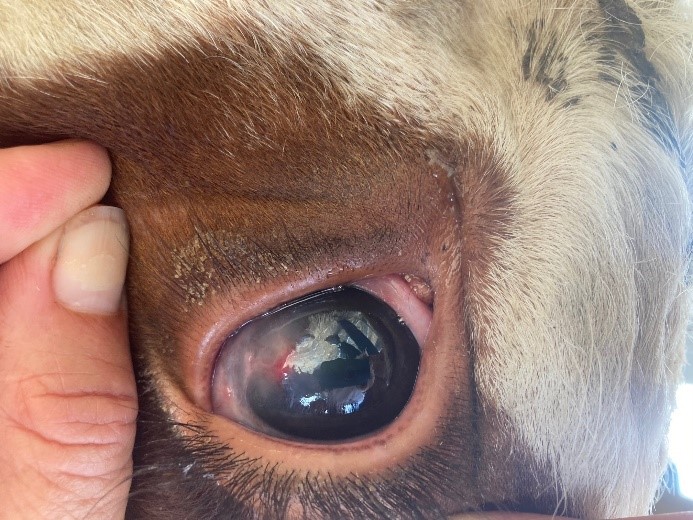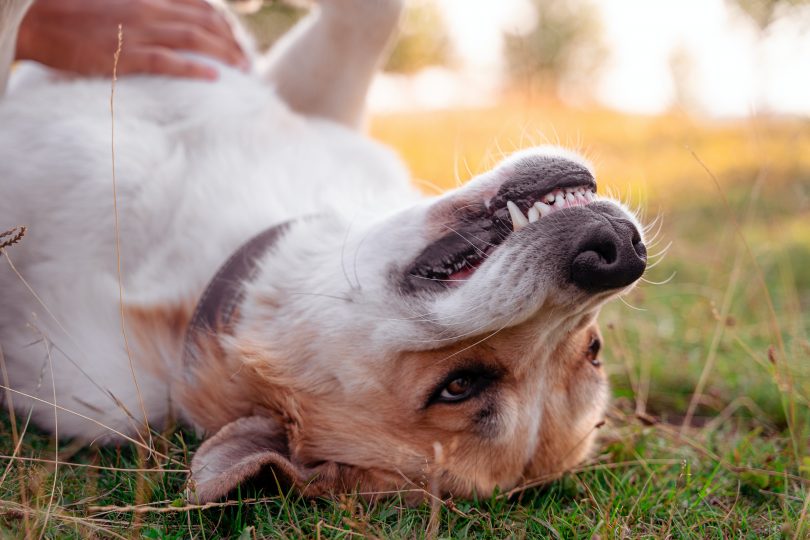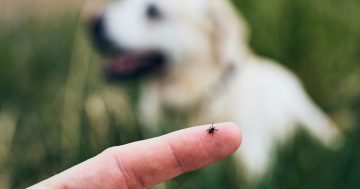
Grass seed stuck in a cow’s eye can look like pink eye and it must be removed. Photo: Supplied.
Precious pets and livestock are keeping vets busy as sharp and irritating grass seeds wreak havoc in southern NSW backyards and paddocks due to the warmer weather.
Vets say they are treating animals every day for grass seeds that have burrowed into their ears, eyes, feet and skin, and even been inhaled.
Crookwell vet Dr Catherine Culley recently treated two dogs for major chest infections caused by inhaled grass seeds. She had to drain a litre of fluid from their chests as part of the treatment.
Dr Culley said dog owners should see a vet as soon as possible if canines are sneezing.
“That way we can remove any grass seeds stuck in their nose before they get into the lungs,” she said.
Sheep, cattle and horses aren’t immune to pesky grass seeds either, with many ending up stuck in their eyes.
South East Local Land Services’ district vet, Dr Lou Baskind, said grass seeds in eyes can look like pink eye, but the eye won’t heal unless the seed is found and removed.
“A thorough examination under the eyelids is warranted,” she said. “Make sure you have safe facilities for restraint of the animal’s head, and that you have a good knowledge of safe animal handling.

Dogs should have their paws, ears, coats and skin checked for grass seeds every day during summer. Photo: Lucian Dachman.
“Cattle are averse to having their face touched, especially if the eye is painful, and they may throw up their head, injuring you in the process.
“You may want to recruit your private veterinarian as they will be skilled in safe examination and can also perform more advanced procedures such as a local anaesthetic to numb the eye, or injections into the surrounding eye tissue for antibiotics and pain relief.”
Dr Baskind said abundant growth in pasture grasses, brought about by rain and warmer weather in spring, is to blame.
“Grass seeds find purchase in animals’ coats or in skin crevices due to their fine projections and arrowhead shape, which allows them to burrow forward and resist backwards movement,” she said.
“Common grasses that cause problems include barley grass, brome grass, Chilean needle grass, erodium, silver grass, spear grass and wire grass.”
Unfortunately, there isn’t a lot that can be done to prevent grass seeds from harming pets and livestock, apart from keeping grasses low and frequently checking animals for grass seeds.
Dr Culley advises looking at pets’ paws, skin, coats and ears daily.








